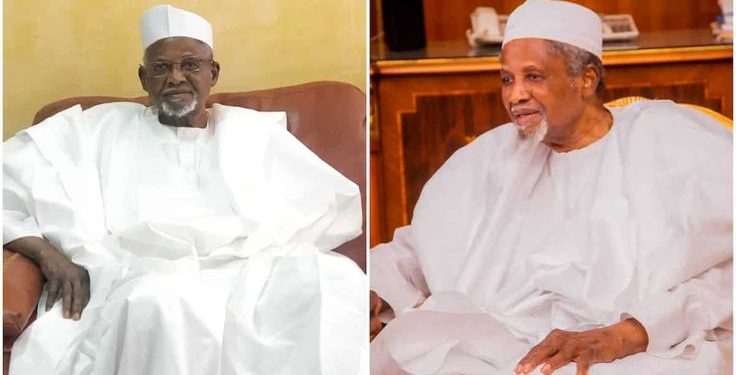Alhaji Aminu Alhassan Dantata, one of Nigeria’s most influential business figures and philanthropists, has died at the age of 94. His passing marks the end of an era for Northern Nigeria’s business community and the nation at large. The announcement was made on Saturday, June 28, 2025, by his Principal Private Secretary, Mustapha Junaid, who confirmed that the respected elder statesman passed away in the early hours of the day in Abu Dhabi, United Arab Emirates, after a brief illness.
Born on May 19, 1931, in the ancient city of Kano, Aminu Dantata belonged to the iconic Dantata family, one of the wealthiest and most industrious lineages in West African history. He was the son of Alhassan Dantata, a legendary merchant whose business empire laid the groundwork for generations of wealth creation in Northern Nigeria. Following in his father’s footsteps, Aminu Dantata joined the family firm, Alhassan Dantata & Sons, in 1948 and quickly rose through the ranks. By 1960, he had assumed leadership of the business, steering it through Nigeria’s post-independence economic shifts and expanding its portfolio across sectors such as agriculture, construction, petroleum, real estate, and commerce.
Alhaji Dantata was not only a businessman but also a statesman. He served in the Northern House of Assembly from 1960 to 1966 and later became Commissioner for Economic Planning and Trade in the then newly created Kano State between 1967 and 1972. He was also a member of the 1979 Constitutional Drafting Committee that helped lay the framework for Nigeria’s Second Republic. These positions allowed him to bring private sector thinking into governance and development planning, making him a bridge between traditional business practices and modern statecraft.
In the private sector, Dantata’s achievements were formidable. He was the founder of Express Petroleum & Gas Company Ltd and a key stakeholder in several financial institutions, including being a co-founder of Jaiz Bank, Nigeria’s pioneer Islamic bank. His investments were instrumental in creating jobs, fostering local industry, and encouraging the growth of indigenous entrepreneurship.
Yet, what truly distinguished Aminu Dantata was his philanthropy. Deeply committed to Islamic values and community development, he dedicated a significant portion of his wealth to charitable causes. He funded schools, mosques, health centers, and orphanages, and was known for sponsoring hundreds of students and pilgrims annually. His foundation supported initiatives ranging from education to maternal health, and he was instrumental in the establishment of key institutions like Al-Qalam University and the renal care unit at the Aminu Kano Teaching Hospital.
Dantata was known for his humility and deep spirituality. In his later years, he reportedly expressed readiness to meet his Creator, having “seen it all” and lived a full life. His death, therefore, though mourned widely, is also seen as a peaceful closure to a long and impactful journey. As news of his passing spread, tributes poured in from business leaders, politicians, traditional rulers, and ordinary Nigerians whose lives were touched by his generosity and foresight.
He is survived by children, grandchildren, and other family members, many of whom continue his legacy in business and public service. Notably, Africa’s richest man, Aliko Dangote, is his grand-nephew—a testament to the enduring influence of the Dantata lineage.
Alhaji Aminu Dantata’s legacy is one of wealth not only in monetary terms but in values, vision, and service. His life story encapsulates the power of tradition fused with modern entrepreneurship, and his passing leaves behind a void that will be hard to fill. As funeral arrangements proceed according to Islamic rites, Nigeria remembers a man whose impact will resonate for generations to come.






















































